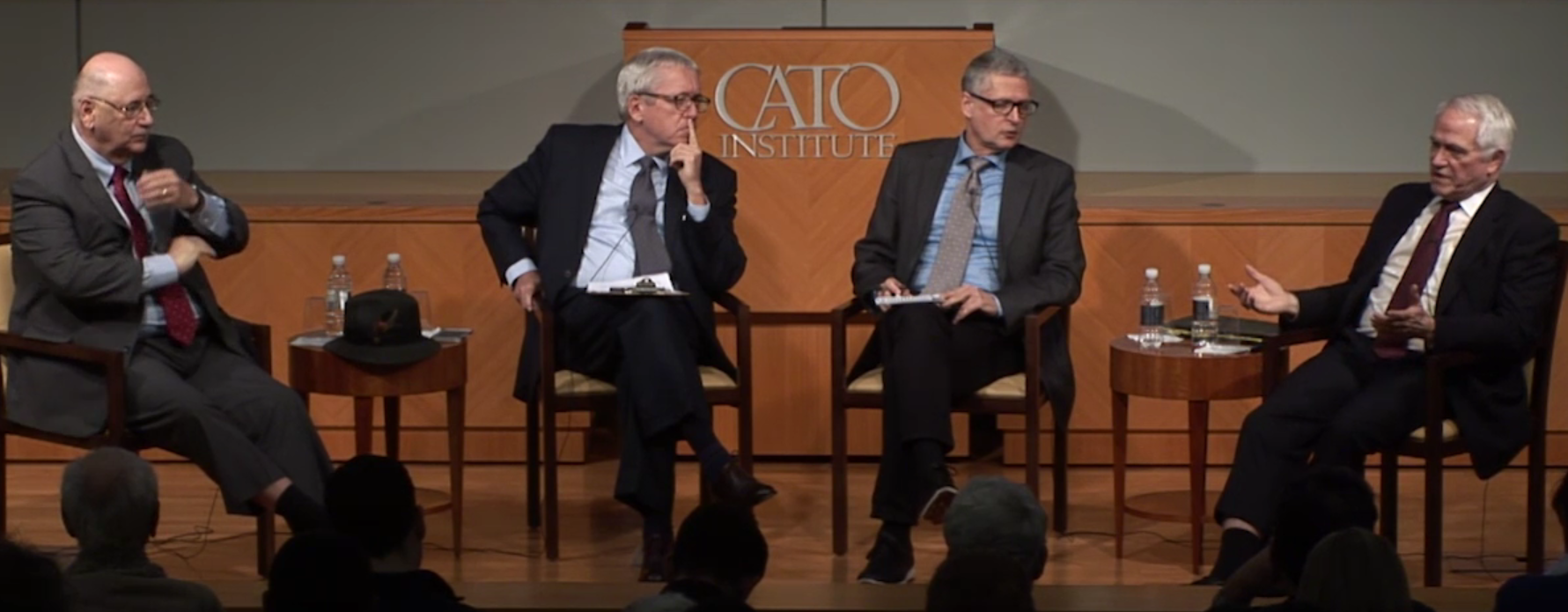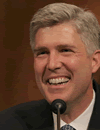On Friday, the Cato Institute hosted a panel event entitled, “Will President Trump Threaten Free Speech?” The panel consisted of Francis Buckley, a professor at George Mason University’s Scalia School of Law and New York Post columnist; Robert Corn-Revere, a partner at Davis Wright Tremaine LLP, who specializes in First Amendment law; and Flemming Rose, a Danish journalist best known as the editor principally responsible for the September 2005 publication of cartoons featuring the Islamic prophet Muhammad. John Samples, a Vice President and Publisher at Cato, moderated the discussion.
The event focused on several facets of free speech in the United States, such as libel law, anonymous online speech, trust in the media, and speech regulation.
The title of the panel alone suggested there would be a critical tone towards President Trump on free speech issues. Samples began the event by reading a collection of quotes from the President about “opening up” libel laws, banning flag burning, and criticizing protesters at the University of California at Berkeley.
Rose generally took a pessimistic view on the state of the media under a Trump administration. Contrasting the landmark 1964 case, New York Times v. Sullivan – which provided broad legal protections to the press – with the more recent Bollea v. Gawker – which led to the bankruptcy of Gawker Media – Rose explained his belief that the media was not only becoming less trusted by the public, but more vulnerable to being silenced by private litigation, if not government action. He took issue with Trump’s portrayal of the media as an “opposition party,” saying it undermined an institution vital to a healthy democracy.
Buckley – himself a Trump supporter during the 2016 election – replied that there was good reason to advocate for an overhaul of libel laws. Pointing to examples in the UK and his own experience as a dual citizen and former reporter in Canada, he asserted that the media should face consequences for knowingly publishing falsehoods, and that such policies have not endangered the free press in other countries. In Buckley’s estimation, the media has itself to blame for its lost legitimacy among Americans, by asserting openly antagonistic narratives against the President and framing half the country as “deplorables” and “clingers.”
Corn-Revere touched more on how political leaders interact with First Amendment law. As he put it, it is not a matter of “will” Trump violate free speech, but “when” he does. After all, he said, every president has attempted to test the limits of the Constitution in some way, and there is a “vast bipartisan conspiracy” to restrict free speech – including President Obama’s investigations of whistleblowers and then-presidential candidate Hillary Clinton’s crusade to overturn Citizens United v. FEC. Corn-Revere weighed Trump’s past business practice of using libel law as a way to silence reporters against nominations he has made as President. The most prominent nominee so far – that of Judge Neil Gorsuch to the Supreme Court – was a promising development for free speech advocates.
While campaign finance issues were not the main topic of discussion on the panel, there were occasional references and parallels. Samples lamented that Americans were willing to regulate campaign speech by their political opponents because they deem their opinions to be “lies.” All panelists agreed that having government as a final arbiter of the truth could be dangerous. In particular, Buckley condemned the idea of having an Orwellian “Ministry of Truth,” while Rose pointed to Europe, where there are efforts to criminalize “fake news” and place it on the level of hate crimes.
With regards to online discourse, Corn-Revere acknowledged this was uncharted territory, but noted the importance of anonymous speech as a tradition in American political dialogue dating back to the Founding Fathers. Buckley noted that “Publius” – the pseudonym used by Alexander Hamilton, James Madison, and John Jay when writing the Federalist Papers – was a prime example of anonymous speech as a means of persuading the public by forcing readers to focus on the quality of argumentation, not the person advancing it. In a time where advocates of speech regulation consistently push for ever-greater disclosure of political participants and slander advocacy nonprofits as “dark money” outfits, the discussion served as an important reminder of the value of anonymity.
Overall, the panelists expressed a variety of perspectives on how to adapt to a new era in media and public debate. Although they differed in their estimations of how the Trump Administration would fare on free speech issues, they seemed to agree that Americans themselves would be the most important factor. On this point, the panelists are correct: Americans should seek out opposing views and stay engaged with their fellow citizens – even in areas besides politics. An active civic culture could prove the best way to maintain institutions like free speech and a free press.














